Supporting Students and Educating The Community
You can support WLCSRF by purchasing a book written by the scholarship founder, Congressman William “Bill” L. Clay, Sr. (Retired). Each book explores important questions and defines battles surrounding U.S. economics, politics, and social system. They tell of past challenges overcome and those yet resolved.
WLCSRF Books
Just Permanent Interests
Just Permanent Interests offers crucial insight to the numerous
tribulations elected officials of African American descent will encounter
as professional politicians. Documenting noteworthy moments in
political history from 1870 to the 1990’s, Clay reminds readers of the
contributions made by black politicians beneficial to every American
and reveals how the system continually works to both empower and
suppress their continued success. With over thirty years in elected office,
Clay does not write from speculation, but verifiable personal experience
(Clay). With that experience came absolute clarity to the Congressional
Black Caucus motto: black people have no permanent friends, no
permanent enemies, just permanent interests.
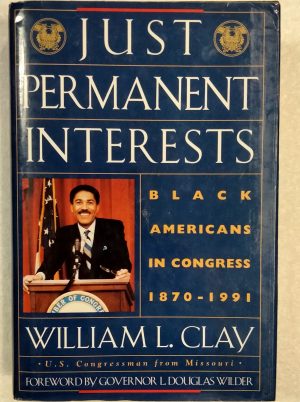

To Kill or Not to Kill
Capital Punishment continues to promote heavy controversy in the United States. With nearly a 60/40 split throughout the country in regard to legality, it unequivocally divides our nation, with no evidence of compromise in the near future. However, when considering the majority of Americans profess belief in Christianity, “the views of the American public concerning capital punishment reflect a basic paradox in religious values” (Clay). In To Kill or Not to Kill, Retired United States Congressman William L. Clay Sr. explores this paradox, while also revealing the moral, racial, and economic injustices that the death penalty perpetuates.
US Presidents: The Good, The Bad, The Ugly Pimples, Warts and All
Hundreds of politicians and journalists have written books to evaluate or
critique United State Presidents. However, what has not been uncovered
in full capacity is an accurate recount of the presidents’ behavior
specifically toward black American citizens – until Retired Congressman
William L. Clay gave readers this very opportunity in his book, U.S.
Presidents: The Good, The Bad, The Ugly Pimples, Warts and All. From
Franklin D. Roosevelt to John F. Kennedy, readers will see the direct
correlation of the work done in Oval Office and its impact held on the
common citizen. The impoverishments of minorities often were at the
hand of the serving president, and in this book, Clay reveals specifically
why and how several presidents were ultimately responsible.
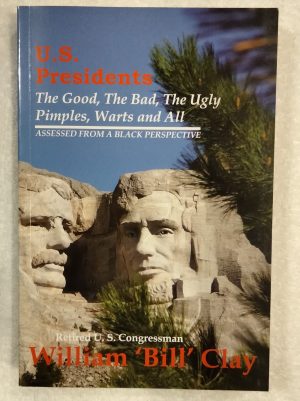
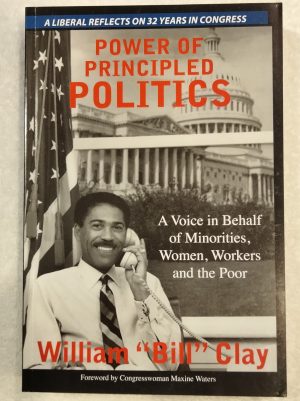
Power of Principled Politics
Retired Congressman William L. Clay Sr.’s career as a United State Representative spanned the election of six United State Presidents – beginning with President Richard Nixon in 1969 and ending with
President Bill Clinton in 2001. Power of Principled Politics is a reflection of serving in public office during some of the most monumental moments in the nation’s history– the height of the civil rights movement, multiple assassination attempts, and an endless array of scandals generated by corruption, lies and greed.
A Political Voice at the Grass Roots
A Political Voice at the Grass Roots recounts the legacy of William L
Clay, Sr.’s ongoing fight for civil rights during the 1950’s – 1970’s for
St. Louisans, an era where politics were inarguably unequal for
minorities and the poor. Through this documentation, current and future leaders have the opportunity to grasp a clearer understanding of racially charged history, and how to best serve the citizens who elect them to combat it.
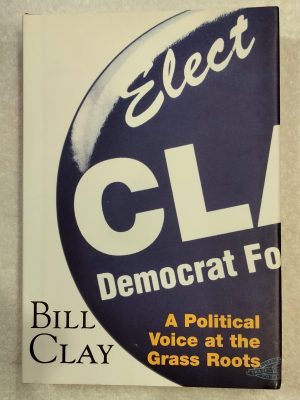
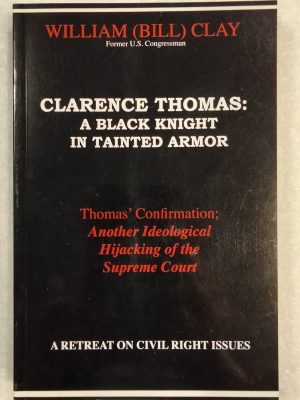
Clarence Thomas: A Black Knight in Tainted Armor
African Americans elected to public office often choose to use their
influence to advocate for the rights and advancement of minorities and the disadvantaged. Justice Clarence Thomas has made clear his stance as a black man without any concern for black agendas. Clarence Thomas: A Black Knight in Tainted Armor documents numerous instances Thomas eliminated hope and opportunity for the less fortunate in society – many of which are people of color.
The Jefferson Bank Confrontation
Among the many racial injustices of the 1960s in St. Louis, MO is the Jefferson Bank Protest of 1963. The confrontation existed due to qualified black applicants facing unjust denial for job opportunity, with no other logical explanation other than the color of their skin. The irony of the protest was the media’s ludicrous attempt to promote St. Louis as a city free of racial tension, which of course was proved false not only by Jefferson Bank, but the actual economic and social state of black St. Louis citizens.
Thankfully, the imprisonment of nineteen civil right fighters was not futile, as thousands of unemployed blacks found work as a result. As an active participant, author William L. Clay gives an accurate recount not only of this moment in history, but “…an insight into the dynamics of the struggle for economic equity and political parity, …reasons for the demonstrations,” and a reflection “…on the crisis in employment faced by blacks” (Clay).
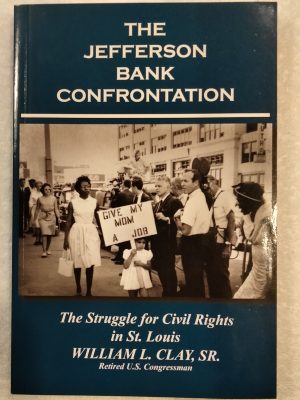
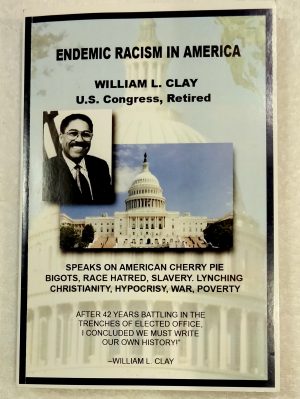
Endemic Racism in America
William L. Clay, Sr. begins his narrative with the dictum we should tell our own history. He proceeds with his story of 32 years in the U.S. Congress, enduring six presidential administrations as a founding member of the Congressional Black Caucus From this vantage point he puts on the persona of political griot, the master storyteller of American political and social history. Clay deconstructs the political, economic, religious, and military institutions from close range. This book ends with solutions for those who have the stamina and courage required to heal the country’s racial divide.
